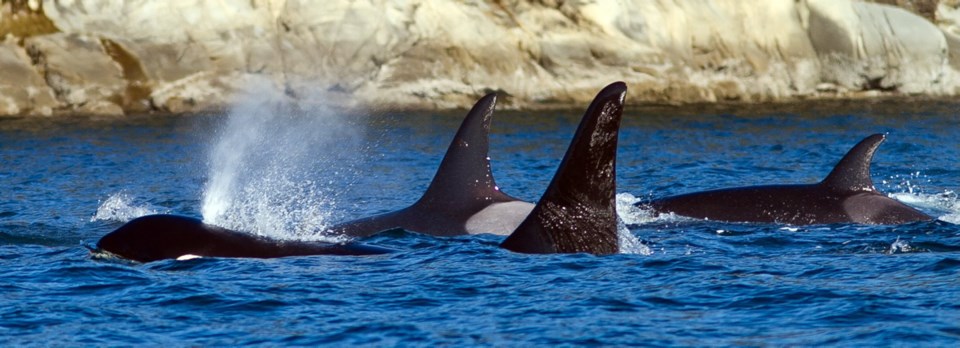More boats from Washington state’s Department of Fish and Wildlife will patrol the U.S. side of the Juan de Fuca Strait to look for boaters who disturb southern resident killer whales.
The increased patrols are an effort to protect the endangered whales, whose numbers have dipped to their lowest in more than a decade.
On the B.C. side, however, there will be fewer eyes on the water.
Straitwatch, the group tasked with watching and educating boaters, was told last month it would not receive Environment Canada funding this year, meaning its Salish Sea and Alert Bay boats will remain beached.
Concern about the future of the resident killer whales is growing, so it is puzzling that the federal government is refusing to fund a program credited with helping protect the whales from vessel disturbance, said Leah Thorpe, spokeswoman for Cetus Research and Conservation Society, the non-profit group that runs Straitwatch.
“The government has not given us a reason,” Thorpe said.
There are 82 whales in the three resident pods, the lowest number since 2002, and no calves have been born this year, despite recovery plans in place in Canada and the U.S.
Lack of chinook salmon, pollution and vessel disturbance are pinpointed as threats faced by the animals.
Straitwatch, which was funded for a decade, had its funding cut last year and pulled its boats out of the water early.
This year, the group applied for partial funding, but was turned down by the Environment Ministry’s Habitat Stewardship program.
Soundwatch, the U.S. equivalent, is continuing to operate on the Washington side of the water.
“We have heard they are struggling quite a bit without us out there,” Thorpe said. “We really should be stepping up on our side of the border.”
In 2011, Straitwatch had contact with 650 boaters, many of them pleasure boaters who were unaware of the rules designed to protect killer whales from vessel disturbance.
Fisheries and Oceans Canada patrols are intermittent, said Stefan Beckmann, DFO conservation and protection supervisor.
“Last year, we did 26 boat patrols and this year will be about the same,” he said.
“It’s what we have funding for and we have to balance it with other priorities and we only have so many staff.”
DFO shares the concern of scientists about the shrinking number of southern resident killer whales, Beckmann said.
However, boaters appear to be becoming more conscientious about appropriate behaviour around the whales, he said.
There were no prosecutions for disturbing the whales last year in the Victoria area, but there were prosecutions in the Campbell River area, Beckmann said.
Increased enforcement by Washington is being welcomed by the whale-watching industry, although, ideally, Straitwatch should also be on the water, said Michael Harris, executive director of the Pacific Whale Watch Association.
“Our operators have been pushing for more official enforcement for years, so this is wonderful news for us, wonderful news for the whales,” he said.
Pacific Whale Watch president Brian Goodremont said it is estimated that almost 90 per cent of violations are by well-intentioned, but inexperienced pleasure boaters.
“They make a lot of mistakes,” he said.
“Without the feds and state agents out there, it’s sort of been left to us to keep the peace and protect the whales.”



